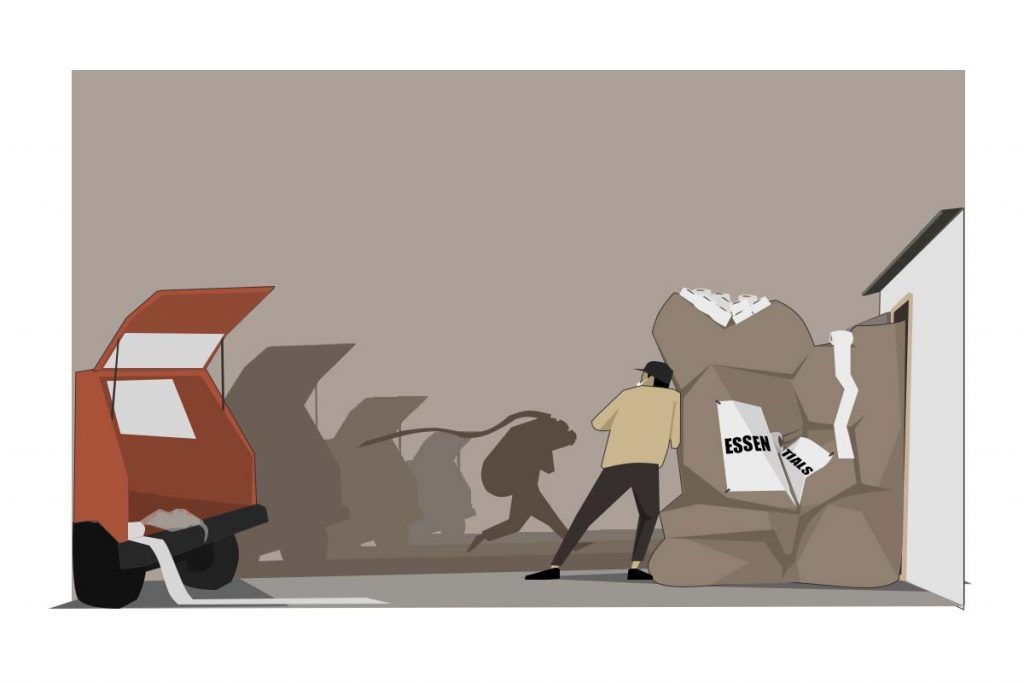We see memes and videos on Facebook and Instagram of people at grocery stores hoarding “essential” goods such as toilet paper, clawing and screaming at each other for a roll of the “precious” commodity.
As tragic as it may be, these acts spell out something worrying about human behavior – such individuals, by putting their own needs above those of others, unconsciously hurt themselves in their selfish pursuits.
The Tragedy of the Commons, is a thought experiment commonly used in environmental science, to describe a situation related to common-pool resource systems. The story, first demonstrated in 1833, by William Forster Lloyd, proceeds as follows – A group of cattle rearers share a common plot of grassland, on which each are entitled to let their cows graze. As each rearer adds an additional cow to the herd to reap extra benefits from the grassland, it also leads to overgrazing. The tragedy is that, all herders cash-in on their pooled ownership of the grassland, and take out more than their fair share from it, thus depleting the resource. What emerges, is a coordination failure.
The Tragedy of the Commons, is a problem that not only applies to natural resources such as air, land, and water, but also to man-made creations, such as parks and roads. Common-pool resources are also public goods, as they are non-excludable (that is, an individual cannot be excluded from enjoying the benefits they have to offer). However, they are also rivalrous (which means that one’s use of the good, decreases the quantity available to others).
It is this nature of common-pool resources that gives rise to the phenomenon of externalities, whereby one’s actions affect another’s well-being, and the costs and benefits of such an interaction, are not tangibly accounted for.
The current COVID-19 pandemic, is a terrifying reality. Due to extreme fear and paranoia, individuals are panic buying and hoarding toilet paper, sanitizers, masks, food, water, etc., creating a shortage for everyone else in the process. This becomes challenging for those who are denied access to these supplies, as they are exposed to a higher risk of illness and death.
To make matters worse, people who see themselves as entitled, are more likely to disregard socially desirable behaviour and etiquette, while expecting others to follow. For instance, while hoarders are drooling over their haul, they get upset and name and shame others who are indulging in the same. This is because, instant gratification gets the better of us. Anyone can go to a grocery store and buy what they want, with no incentive to limit themselves – a quick and premature arrangement to avoid pleading and negotiating with others.

The essence of the problem, is a dilemma between private and social interests. If the actions of all agents could be coordinated, the social optimum would be achievable. It would be in everyone’s interests to buy only what they need, so that shelves do not become empty. Without social responsibility, it becomes simpler to hoard the limited resource. Hoarding, becomes an inefficient outcome, as it leads to wasteful allocation, artificial scarcity and high prices.
Coordination problems are not impossible to solve at the community level. However, they require time and effort, to set up and internalize social norms. Government intervention in the form of regulation and facilitation, may be required to coordinate individual actions, by internalizing the externalities caused. Nudging, in the form of an information campaign, which advertises maximum monthly requirements for a family, may also motivate individuals to stick to what they need, and not what they desire.
At the same time however, the imperfections of both market and government solutions must be weighed, and a midpoint must be reached. We are not stuck in traffic; we are the traffic, and right now we need our roads to be clear.

